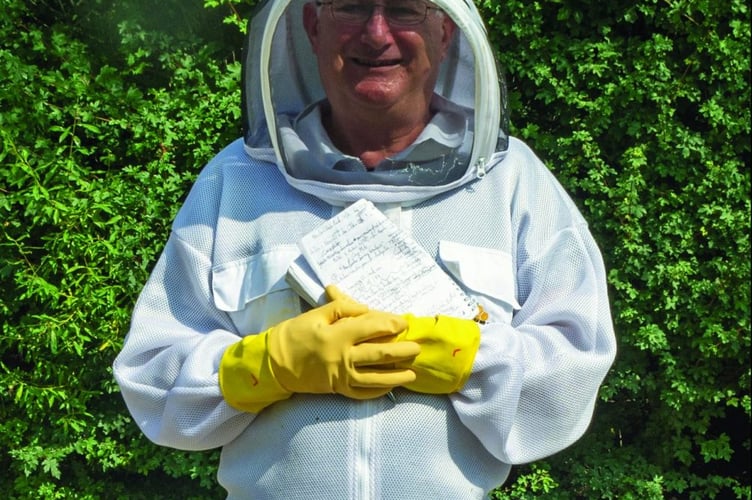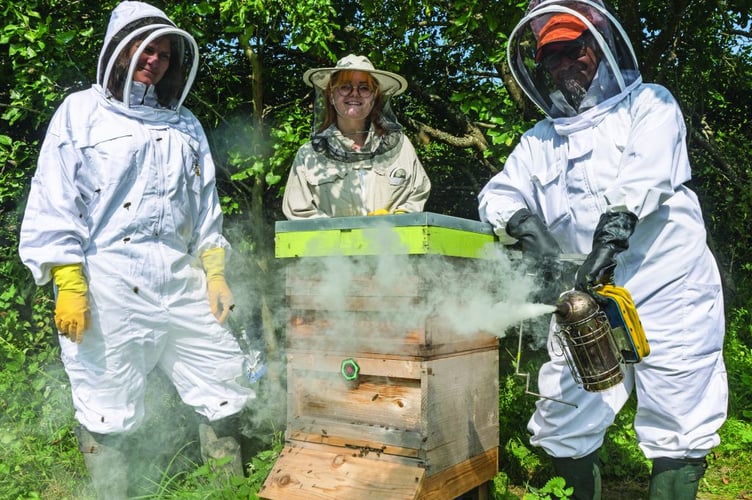BEES are the vital pollinators of many of the food crops that we consume, but their numbers are declining. They are under threat thanks to a combination of disease, toxic pesticides, loss of habitat, and the vagaries of the climate, writes Len Walker.
One organisation that is fighting back to promote the importance of bees to our environment and promote their welfare is the British Bee Charity, which is based in Woking.
To spread the word about this marvellous insect, experienced beekeepers held a “taster day” for interested people, an initiative that offers help and advice for beginners who are keen to learn more about the management of bees and hives.

Hives – structures manufactured to hold a colony of bees – are a truly remarkable entity and each can be home to upwards of 60,000 bees during the summer.
When the sun is shining, the bees are usually out busy foraging for pollen and nectar from flowers to turn into the honey that is harvested by beekeepers, but when the weather is cold, wet and windy the bees do not go out.
It can take the lifetimes of 12 worker bees to produce just a teaspoon of honey. Workers and the nursery bees that tend the eggs and larvae live on average for six weeks. A queen bee is the head of the colony, laying up to 2,000 eggs per day in high season.
During a taster session I attended at an apiary – collection of hives – in Old Woking, visitors were dressed in protective suits and hats with a mesh veil to lessen the chances of being stung by the bees.
They were provided with an understanding of the bee ecosystem and the more complex aspects of beekeeping skills, while enjoying the practical experience of handling honeycomb frames from the hives.

Mike Harvey, a member of the British Bee Charity committee, said: “We wanted to offer people the chance to visit us and see that bees are living creatures that require TLC.
“Many of us have never opened a hive or handled a frame of live bees. While some may find it unnerving to come face-to-face with 60,000 bees, others find it a fascinating experience that leads to a truly rewarding hobby.”
More information about the work of the British Bee Charity and its free taster sessions can be found at www.britishbeecharity.com.




